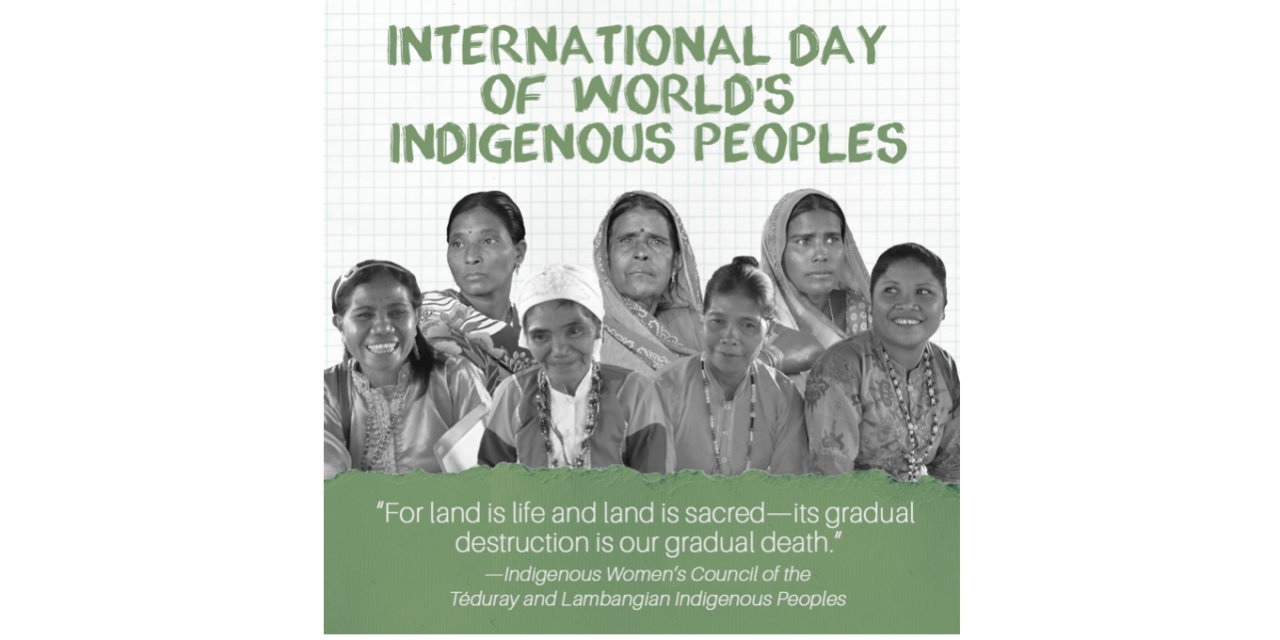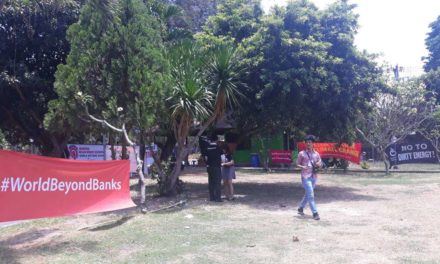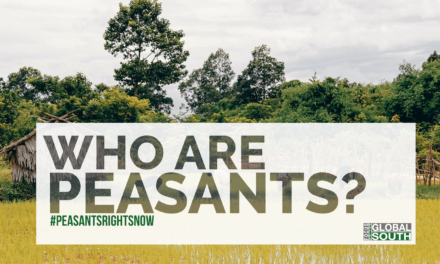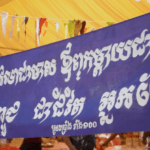Food shortages and mass unemployment across the Global South highlight the precarity of our reliance on corporate-led supply chains for basic necessities.
In spite of historic odds ranging from European colonialism to environmental destruction, there remains a portion of humanity that is committed to ecological and societal harmony – Indigenous peoples (IPs). Consistently on frontlines of struggles against extractivism, developmental destruction, racism, and social, cultural, and political marginalization, IPs demonstrate the need for collective rights and justice for all people.
Women play a critical role in realizing the goals of indigenous communities. Despite facing multiple layers of discrimination, indigenous women provide enormous contributions to their communities as seed savers, healers, economic pillars, multigenerational educators, human rights defenders, and experts in food, forests, and biodiversity.
From Latin America to Asia, IPs are working in solidarity to develop and legally codify the philosophy of Buen Vivir – living the “good life” in harmony with nature and promoting the equal distribution of resources over corporate profits.
In honor of the International Day of the World’s Indigenous Peoples (August 9), Focus has compiled a round-up of stories highlighting IPs’ struggles for self-determination.
Thailand
Since the implementation of its Forestry Master Plan (FMP) in 2014, Thailand’s military junta has deployed violence in the form of physical attacks, killings, enforced disappearance, and burning and destruction of property to keep landless villagers and IPs off of public land they have inhabited for generations.
From June 2014 to February 2015, more than 1,000 people were arrested and prosecuted for illegal logging and encroachment. These measures have exposed to frontline communities the reality that development policies are designed to benefit corporations and the economic-political elite, despite their toll on people’s lives and on biodiversity in the ecosystem. Groups like the Northern Peasants Federation (NPF) are working to secure government recognition of IPs’ right to access state-owned land.
Philippines
The indigenous Lumad communities of Mindanao are demanding an end to discrimination and official recognition of their ancestral land rights in the face of threats from mining and commercial farming.
Focus’s 2018 documentary “Sulagad: Our Life, Our Future” highlights the indigenous concepts of food sovereignty and agroecology practiced by the Téduray and the Lambangian indigenous peoples of Mindanao as alternatives to market-driven, corporate agribusiness.
The documentary features interviews with Timuay Labi (Supreme Chief) Sannie Bello, who passed away on June 5, 2020.
Focus released the “Lumad in the Bangsamoro” documentary series as part of the Loyukan indigenous peoples collective’s social media campaign advocating for the full inclusion of IP rights into the Bangsamoro Organic Law in 2018. Enacted later that year, the new law recognizes the rights of indigenous peoples and makes reference to the Indigenous People’s Rights Act and the United Nations Declaration on the Rights of Indigenous Peoples.
India
For more than 30 years, the Narmada Bachao Andolan movement has been advocating for the protection of IP communities in India’s Narmada region, in the states of Gujarat, Maharashtra, and Madhya Pradesh, who have been displaced by the thousands by the state-led proliferation of dams on the Narmada River.
Since the start of its COVID-19 lockdown, the Indian government has used the pandemic as a pretext to establish plantations in forests where tribal communities have practiced sustainable farming for generations. Police have destroyed the homes of nomadic herders, assaulted tribal women, and arrested entire families inhabiting the forests of India’s northern states.
Focus has interviewed several tribal leaders and forest-dwellers who demand that the Indian government respect the Collective Forest Rights provision of the Forest Rights Act and cease its threats against indigenous communities.
Cambodia
Despite having a Law on the Protection of Indigenous Peoples on the books, the Cambodian government has repeatedly granted land concessions to companies that have displaced IPs by the thousands without providing compensation. In 2014, Cambodia’s Royal Group and China’s Hydrolancang International Energy began construction on the Lower Sesan II Hydroelectric Dam in Stung Treng Province. The companies claimed only 1,000 families would be displaced, but in fact, an estimated 5,000 were displaced, and at least 78,000 villagers lost access to migratory fish they relied upon for their livelihoods.
In March 2019, Focus participated in an exposure visit organized by the My Village Organization to Stung Treng Province to document the experiences of the displaced villagers and advocate for their compensation.










